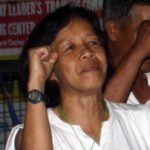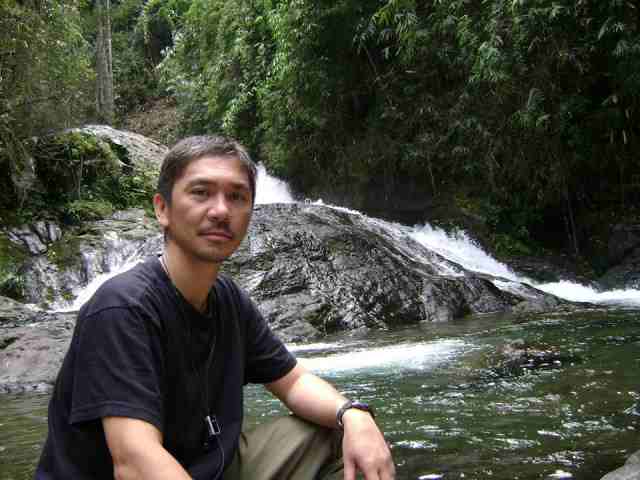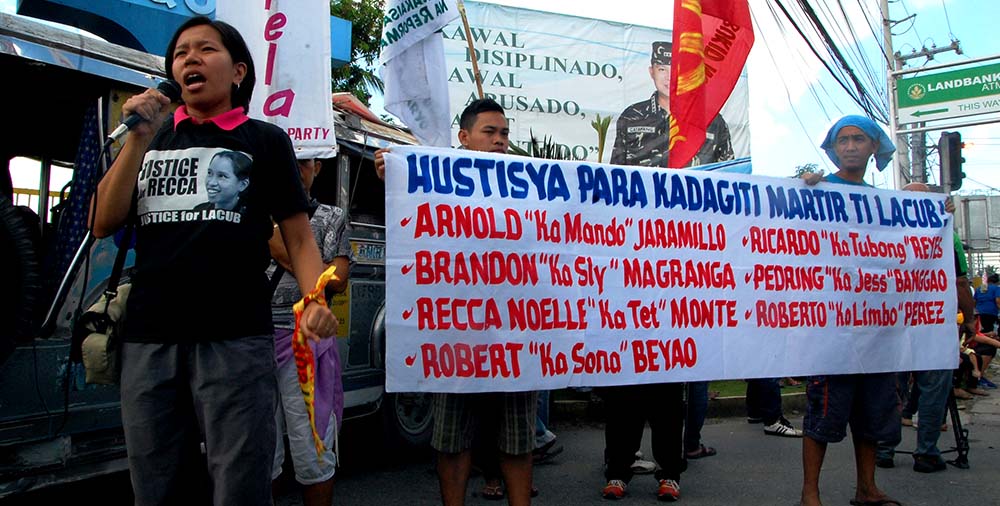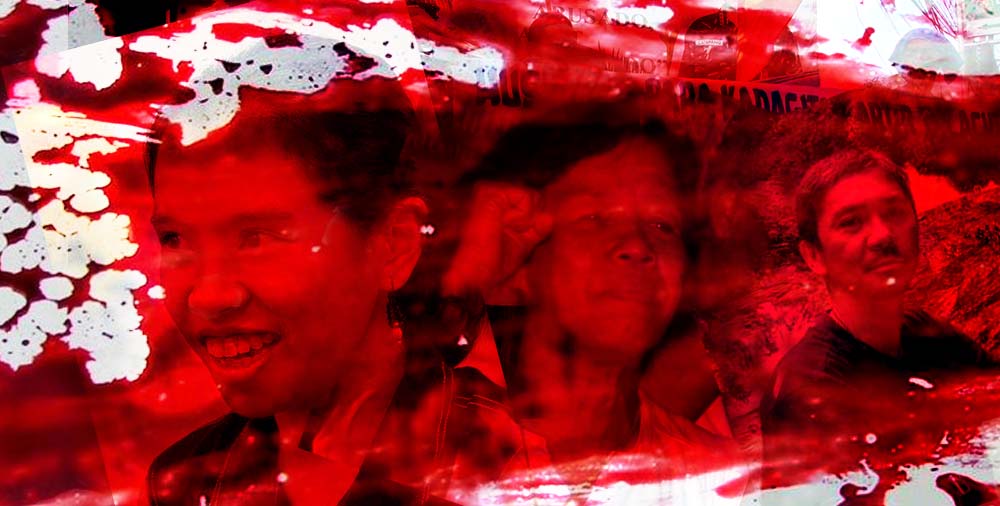The Philippines remains in a state of war and thousands of ordinary Filipinos have been caught in the crossfire between the Government of the Philippines’ (GPH) Armed Forces of the Philippines (AFP) and groups such as the Communist Party of the Philippines (CPP) and its armed wing the New People’s Army (NPA) that has been waging a war of resistance since 1969.
Both sides have claimed that the other continues to commit crimes against civilians in the conduct of their military and related activities. In the last four decades, the accusations have mounted, and so have the number of victims and casualties, including women and children. International institutions including the United Nations and its agencies led by the Human Rights Office of the United Nations High Commissioner for Human Rights (OHCHR) as well as Amnesty International and Human Rights Watch (HRW) have issued mission statements and initiated investigations to verify the veracity of these accusations against both parties.
But what of the combatants of either parties themselves? What happens to members of either the AFP or the NPA in the immediate aftermath of armed encounters? Investigative bodies in the country have said and done very little on reports that violations against International Humanitarian Law (IHL), specifically regarding treatment of bodies of slain combatants.
And keep this mind: in Filipino culture, it is said that the bodies of the death should be given the utmost respect.
Civilians Caught in the Crossfire
Earlier this month on September 7, the Cordillera Human Rights Alliance (CHRA), released a statement denouncing the AFP for allegedly using civilians as human shields during a firefight against members of the New People’s Army (NPA).
The human rights group stated that that 24 civilians in Lacub, Abra were forced to act as human shields by the 41st Infantry Battalion of the Philippine Army on September 5. Among these civilians were Noel Viste, Nicasio Asbukan and Fidela Salvador.
Viste died during the firefight and his body was flown by a military helicopter to Barbarit, Lagangilang, Abra. Nicasio Asbukan

was turned over to the local police in Lacub in a state of shock. Salvador, an engineer by profession and who was in the area doing monitoring visit for various socio-economic projects implemented by the Cordillera Disaster Response and Development (CORDIS) was also killed.
There are reports, however, that Salvador may have been killed in a separate incident when soldiers disregarded deliberately mistook her for an NPA combatant and ignored explanations that she was only a civilian caught in the middle of the military operations. Salvador was a staff member of the Center for Development Programs in the Cordillera (CPDC) and Cordillera Disaster Response and Development Services (CORDIS-RDS).
Audrey Beltran, secretary general of CHRA, told the media that “Engr. Delle” (Salvador’s nickname) was a civilian and a non-combatant. “She dedicated most of her life, skills and expertise in bringing much-needed services to the neglected, far-flung communities in the Cordillera. She was a staunch advocate of indigenous peoples’ rights, and a strong believer in peace and human rights.
The CHRA has cried foul against the AFP and said that its troops in Lacub severely violated IHL laws when they killed Salvador. The group released a statement citing the findings in the autopsy report conducted by the National Bureau of Investigation (NBI). The NBI report stated that Salvador suffered nine (9) gunshot wounds, multiple contusions and lacerations and a head injury caused by a blunt object. The report states that the cause of her death are: “hypovolemic shock secondary to gunshot wounds and the blunt traumatic injury to the head (contributory)”.
Beyond these violations against IHL, however, are more violations more violent in nature.
Desecration of Remains of Combatants
In news reports, military officials claimed that least five NPA combatants were killed during the Sept. 5 operation, and among them were Arnold Jaramillo, allegedly the secretary of the Abra Provincial Party Committee and former University of the Philippines Diliman engineering student Recca Noel Monte, 33.

According to Beltran, the state of the bodies of civilians and the members of the NPA as observed during the retrieval and the autopsy bore signs and strong indications of probable torture and desecration.
“There is strong probability [as well] that rules of engagement were violated. There could have been excessive use of force. Even if the members of the NPA had no more capacity to fight back, they were still slain or no quarter was given during the conduct of the AFP military operations. These are grave IHL law violations. The 41st IB and the operating troops of the 5th Infantry Division of the AFP and the Northern Luzon Command in Abra have to be made accountable for these,” she said.
Employee at the House of Representatives Janice Lee Monte-Hernandez, 37, sister of the slain NPA member Recca, released a statement wherein she gave details on how the AFP allegedly violated IHL laws when they all but destroyed Recca’s body. From Quezon City, she immediately travelled to Baguio on September 7 to identify Recca’s remains.
[quote_center]There is strong probability as well that rules of engagement were violated. There could have been excessive use of force. Even if the members of the NPA had no more capacity to fight back, they were still slain or no quarter was given during the conduct of the AFP military operations. [/quote_center]
“I could not believe what I saw. Half of her head from the bridge of her nose and up was practically blown off. She was barely identifiable if not for her prominent overbite and the shirt she wore. Many surmised the state of her body and her barely identifiable face was due to the fact that the 41st IBPA was known for brutally “finishing off” those that they killed, combatants or otherwise. They probably placed a bullet in her head to finish her off, they said,” she wrote.
Monte-Hernandez said that the FBI autopsy revealed Recca’s body bore no gunshot wounds.
“Not one. Not a single bullet hit her. Did the 41st IBPA capture her alive? Her lungs had collapsed” Monte-Hernandez lamented in her statement.

Monte-Hernandez explained that every time Recca wrote her, the latter said that she had not had an asthma attack in all of her 12 years as an NPA because “the mountain air refreshed her.”
“Recca’s legs bore multiple fractures. Did she not trek the Cordillera mountains with ease for over a decade? My sister’s body bore several marks of torture, hematoma. The autopsy report described her broken skull as that which resembled a crushed egg. A crushed egg. Her brains were missing. My sister, Recca died of multiple trauma injuries. Clearly she was taken by the enemies alive. Was she raped? The forensic said her body was in an advanced state of decomposition and it was hard to tell if she was raped,” Monte-Hernandez explained.
The IHL violations in Lacub are hardly the first.
In early 2012, relatives of slain NPA members in Abra and Quezon provinces filed a case with the Commission on Human Rights (CHR) against the desecration of the bodies of their relatives — eight NPA guerrillas in Tineg, Abra and 11 in San Narciso, Quezon. They secured an audience with CHR commissioner Jose Mamauag and called for an immediate investigation, and appropriate sanctions be made against those who will be found guilty of violating IHL.
On October 10, 2011, eight NPA fighters in Tineg were killed in a raid conducted by the AFP’s 503rd Brigade and the 41st IB. Based on the complaint filed with the CHR, the soldiers defiled the bodies of the NPA guerrillas killed in the raid. The families of the slain combatants included photographs of the bodies taken when they were claimed from the funeral parlor. The soldiers also allegedly denied the request of the families to give their relatives a proper burial.
Leslie Ann Olivar, a daughter of two of the slain guerillas, said that the bodies of her parents looked “horrifying.” She said that the back of the head of her father Ka Amir was shattered, but his face was intact. Autopsy findings stated that it was possible that the barrel of a gun was shoved into his mouth before it was fired by one of the soldiers.
The body of Leslie Ann’s mother, “Ka Cristy”, on the other hand, was torn open from the chest all the way down to her stomach, and her intestines were fully exposed.
In interviews with the media, Leslie said that Scene of the Crime Operatives (SOCO) of the Philippine National Police did not even ask permission from them, the families of the slain NPA members. The PNP did an autopsy and initially denied the request of the families to claim the bodies even after they stated their rights as relatives.
“The soldiers took the bodies of our parents and put them on a dump truck, then unloaded them in the funeral parlor. They looked like bags of garbage, and they were treated like garbage!”, Leslie cried.
Violations of the NPA
For their part, however, the AFP has also filed complaints against the NPA when it comes to IHL provisions on hors de combat and respect for the dead.
In November 2012, Davao City councilor Karlo S. Bello slammed the NPA’s killing of four soldiers, charging the NPA of mutilating the body of the massacred and unarmed military personnel, including the leaders who ordered the massacre.
Based on report of the 69th Infantry Battalion (IB) and the Paquibato Police Station, after the NPA’s initial attack on the soldiers, the NPA shot at close range the wounded Private First Class (Pfc.) Ahian Dolero, Pfc. Marvin Lauronal and Pfc. Noel Sigan to kill them. The TFD alleged that fourth soldier, Pvt. Marcelo Himaya, was taken to a separate area and executed.
In an interview with local media, 69th IB commander Lieutenant Colonel Inocencio Pasaporte was quoted as saying that the autopsy report on Himaya showed that he had a laceration on the neck which could mean that he was executed.
On the most part, however, the IHL violations the AFP accuse the NPA of committing have to do with the NPA’s supposed use of child soldiers and land mines. Both parties continue to exchange barbs on these issues.
The AFP and its allied people’s organizations such as the ANAD party-list group also continue to charge the NPA when it comes to its collection of revolutionary taxes which the AFP calls “extortion”.
In June 2013, President Benigno Aquino III ordered that charges be filed against the NPA for alleged “war crimes”. This has to do with the NPA’s attack in La Castellana town, Negros Occidental that left nine people dead and 12 others wounded. The AFP said that the NPA makes it a habit to launch military attacks against soldiers despite the presence of civilians in the immediate vicinity, causing civilian deaths.
When it comes to the desecration of bodies of dead combatants, however, it appears that there are more charges against the AFP.
No Declaration of State of War
Despite regular media reports of clashes between the AFP and the NPA, there is no official state of war in the Philippines and ordinary penal laws are applied to members of liberation movements, such as that represented by the CPP-NPA and their supporters. Political crimes are not considered as such, and this is precisely why considerations of human rights and those of IHL are important in the Philippine context. According to human rights group Karapatan, there is a need to popularize IHL in the Philippines, particularly among members of the warring parties who need to observe them. The consequences of violations of IHL are dire, and the civilians are always the ones who suffer.
“Time again, the AFP and the government violate their commitment to apply the principles and standards of IHL that should protect those who are taking no active part in the hostilities, persons placed hors de combat, persons deprived of liberty for reasons related to armed conflict and relatives and duly authorized representatives of above-named persons,” said Karapatan chairperson Maria Hilao-Enriquez.
[quote_center]”Time again, the AFP and the government violate their commitment to apply the principles and standards of IHL that should protect those who are taking no active part in the hostilities, persons placed hors de combat, persons deprived of liberty for reasons related to armed conflict and relatives and duly authorized representatives of above-named persons”[/quote_center]
In a paper he wrote, former director Institute of Human Rights, UP Law Center Prof. Alberto Muyot explained that directives from the Philippine government and the AFP to the troops in the field refer to both human rights and principles of IHL without distinction. Given this, in the negotiations between the GPH and the CPP-NPA-National Democratic Front of the Philippines (NDFP), both parties consider human rights and IHL as a single issue. This, Muyot explained, is a deviation from the traditional understanding that IHL is applicable only in times of war, while human rights principles are applicable during times of peace. [Editor’s note: GPH and CPP-NPA-NDFP reaction to the paper and observations of Prof. Muyot are being inquired as of publication of this article.]
The government of the Philippines is party to the four Geneva Conventions for the protection of war victims (of 12 August 1949), to Additional Protocol II applicable in non-international armed conflicts (of 8 June 1977), to various human rights instruments – including the International Covenant on civil and political rights and the International Covenant on economic, social and cultural rights (both of 16 December 1966) – and to other major conventions.
The GPH made its declaration of support to IHL into a formal commitment through the passage of a law included in the 1987 Philippine Constitution. This is known as a “human rights constitution” because it was passed post-martial law during the presidency of Corazon C. Aquino. These laws and statutes were meant to regulate the conduct of military operations by providing specific guidelines to the military and civilian officials for the government’s counter-insurgency campaigns.
Then president Corazon Aquino issued Memorandum Order No. 393 directing the AFP and the Philippine National Police (PNP) “to reaffirm their adherence to the principles of humanitarian law and human rights in the conduct of security/police operations”.
For its part, the NDFP also unilaterally declared its adherence to the principles of human rights and international humanitarian law.
On March 16, 1998 and during the term of then president Joseph E. Estrada, the negotiating panels of the GPH and the NDFP signed the Comprehensive Agreement on the Respect for Human Rights and International Humanitarian Law (CARHRIHL). The agreement, among other aims, seeks to protect civilians caught in the crossfire and combatants who have ceased to take part in hostilities. Many provisions of CARHRIHL is supported by Republic Act 9851 or “An Act Defining And Penalizing Crimes Against International Humanitarian Law, Genocide And Other Crimes Against Humanity, Organizing Jurisdiction, Designating Special Courts, And For Related Purposes.” As such, both state and non-state armed groups have a mandate to observe the standards of the IHL, and the perpetrators whether government or non-government may be charged.
There is also a provision on of decent burials to slain personnel of the opposite party. The CAHRIHL prohibits the “desecration of the remains of those who have died in the course of the armed conflict or while under detention, and breach of duty to tender immediately such remains to their families or to give them decent burial.”

Uphold IHL
In a recent column in the Philippine Star, Switzerland Ambassador to the Philippines Ivo Sieber highlighted the role of IHL to safeguard humanity.
“Media continue to disseminate horrific reports from around the globe of unspeakable suffering in armed conflicts. Much too often, lack of respect for the existing rules is the principal cause of this suffering. A law that is regularly violated without provoking any clear response is likely to erode and lose its validity over time,” he wrote.
Sieber argued that strengthening compliance with IHL is one of the most important humanitarian challenges today.
“Switzerland and the International Committee of the Red Cross (ICRC) have undertaken a major consultation process on how to improve compliance with international humanitarian law, notably by developing stronger international mechanisms. Proposals and recommendations will be submitted to the 32nd International Conference of the Red Cross and Red Crescent, which will be held in Geneva in late 2015, for states to decide what action to take,” Sieber said.
In the meantime, church-based human right organizations such as Kapayapaan, the Promotion of Church People’s Response (PCPR), the Ecumenical Bishops’ Forum and the Iglesia Filipina Independiente have launched campaigns calling on both the Aquino government and the NDFP to return to the peace negotiations.
Angelito Manalili, convenor of Kapayapaan and former dean of the UP-College of Social Work and Community Development said “in looking at the state of the nation, Filipinos should not gloss over the reality that a civil war is raging in the country.”
“It does not really matter who we believe – the AFP who is claiming that it is winning the war against the CPP-NPA-NDFP or the CPP-NPA who says that its forces are growing and are present in majority of the provinces in the country – the fact of the matter is that the civil war has been going on for decades already; it has been affecting the country; and it appears that it would be here to stay for as long as the roots of the armed conflict have not been addressed,” “ Manalili said.
The groups also called for Filipinos’ support for the Joint Monitoring Committee of the NDFP and the GPH which has its office in Cubao. The JMC is a functioning office that receives complaints about the abuses of either the forces of the GPH or the NDFP. Its existence alone proves the equality between the NDFP and the GPH as political forces, and it is to the benefit of the Filipino people that the JMC continues to operate.
[quote_center]This is a very serious concern for all Filipinos because the lack of respect for IHL and the laws of war are among the heavy reasons why armed conflict in the Philippines continue to worsen, putting roadblocks along the path to a just and lasting peace in the country.[/quote_center]
Unfortunately, however, the JMC’s two secretariats — one of the NDFP, the other of the GPH– have not been able to formally meet since 2004 when the GPH under ex-president Gloria Macapagal-Arroyo scuttled negotiations with the NDFP. There is no rule that the JMC will only be able to fully convene whenever there are peace talks, but this is so far what has happened.
For now, the GPH and the NDFP file and document violations of international humanitarian law by the NPA for the former and by the AFP for the latter, but no serious measures are being implemented to address them and since peace talks between the two are at a standstill. Various human rights groups and church-based human rights organizations mentioned above insist, however, that the Philippine government or the GPH has the primary responsibility to enforce and implement IHL because it is the state in power and in control of the vast machinery and resources of the Filipino people. Assigning this primary responsibility to the GPH also ascribes a heavier weight to violations accused of the GPH.
The lack of respect for IHL and the laws of war are among the heavy reasons why armed conflict in the Philippines continue to worsen, putting roadblocks along the path to a just and lasting peace in the country and this is a serious concern for all Filipinos.
Some revisions inserted in this article originally published in Philippine Graphic Magazine.





























